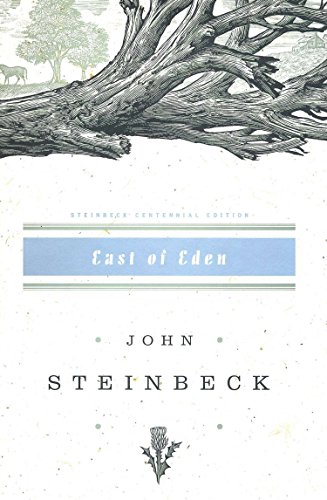Book review: East of Eden isn’t a novel—it’s long-form poetry on emotional humans
 I read my first Steinbeck novel recently, starting with his magnum opus, East of Eden. Spoiler alert: the celebrated author deserves all the hype he received over the last century. This book is a masterpiece of biblical proportions.
I read my first Steinbeck novel recently, starting with his magnum opus, East of Eden. Spoiler alert: the celebrated author deserves all the hype he received over the last century. This book is a masterpiece of biblical proportions.
At first I didn’t think it was perfect, though. I didn’t love how one of the main characters quickly exists the book towards the end with an unsatisfying resolution, until my more astute reading wife explained to me that said character was already likable and therefore disposable without having to change like the other main character.
That realization changed my mind. This book is perfect. It is long-form poetry that made me laugh, broke my heart, filled me with rage, let me celebrate, and taught me over two dozen proverbs.
Five stars out of five—I loved it. These were my favorite passages:
- It never failed that during the dry years the people forgot about the rich years, and during the wet years they lost all memory of the dry years. It was always that way.
- The smile Adam had once caught on her face flashed up in his mind. Her face was projected in front of him. Charles’ voice came through the image and exploded it.
- The proofs that God does not exist are very strong, but in lots of people they are not as strong as the feeling that He does.
- I believe there are monsters born in the world to human parents.
- The free, exploring mind of the individual human is the most valuable thing in the world. And this I would fight for: the freedom of the mind to take any direction it wishes, undirected. And this I must fight against: any idea, religion, or government which limits or destroys the individual.
- There are no ugly questions except those clothed in condescension.
- Morning seems to come earlier every year I live.
- Liza accepted the world as she accepted the Bible, with all of its paradoxes and its reverses. She did not like death but she knew it existed, and when it came it did not surprise her. Samuel may have thought and played and philosophized about death, but he did not really believe in it.
- “Thou mayest!” Why, that makes a man great, that gives him stature with the gods, for in his weakness and his filth and his murder of his brother he has still the great choice. He can choose his course and fight it through and win.
- Aron was content to be a part of his world, but Cal must change it.
- Mr. Trask, do you think the thoughts of people suddenly become important at a given age? Do you have sharper feelings or clearer thoughts now than when you were ten? Do you see as well, hear as well, taste as vitally?
- There’s no spring-board to philanthropy like a bad conscience.
- Laughter comes later, like wisdom teeth, and laughter at yourself comes last of all in a mad race with death, and sometimes it isn’t in time.
- I believe that there is one story in the world, and only one. Humans are caught—in their lives, in their thoughts, in their hungers and ambitions, in their avarice and cruelty, and in their kindness and generosity too—in a net of good and evil. Virtue and vice were warp and woof of our first consciousness, and they will be the fabric of our last, and this despite any changes we may impose on field and river and mountain, on economy and manners. There is no other story.
